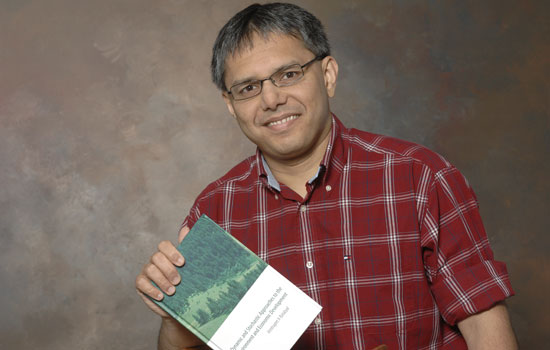Essay collection studies environmental policies of developing countries
A. Sue Weisler | photographer
Amit Batabyal's collection of essays explores the environmental policies of developing countries.
Weighty issues of sustainability have troubled economist Amit Batabyal for more than a decade: how to provide safe drinking water to flood victims in developing countries, how to grow crops without depleting the soil of nutrients, how tariffs might reduce the illegal trade of elephant tusks and rhino horns.
In his new book, Dynamic and Stochastic Approaches to the Environment and Economic Development, Batabyal, the Arthur J. Gosnell Professor of Economics in the College of Liberal Arts, explores the implementation of environmental policy of developing countries in previously published and unpublished essays. The body of work is Batabyal’s response to the 1987 Brundtland Report commissioned by the United Nations and led by former Norwegian Prime Minister Gro Harlem Brundtland. The report, conducted by the World Commission on Environment and Development, introduced the idea of sustainable development as a means of mitigating the impact of human activity on the planet and ensuring the availability of natural resources for future generations.
Batabyal applies theoretical modeling tools involving decision-making under uncertainty to problems facing developing nations in the management of their renewable resources, and he addresses the potential conflict between environmental and trade policies. “Poverty is a big disincentive in managing resources in a sustainable manner,” says Batabyal.
Batabyal’s essays cover controversial and humanitarian aspects of environmental and economic development, such as swidden agriculture (also known as “slash-and-burn”) and providing fresh drinking water to flood victims in the flood-prone regions of South and South East Asia. He dedicates a chapter to agriculture as a renewable resource since the economies of most developing nations are agrarian.
Batabyal considers renewable resources in general and environmental policies encompassing sectors at different stages of development. He also studies the impact of corruption in the implementation of environmental policies by developing countries.














